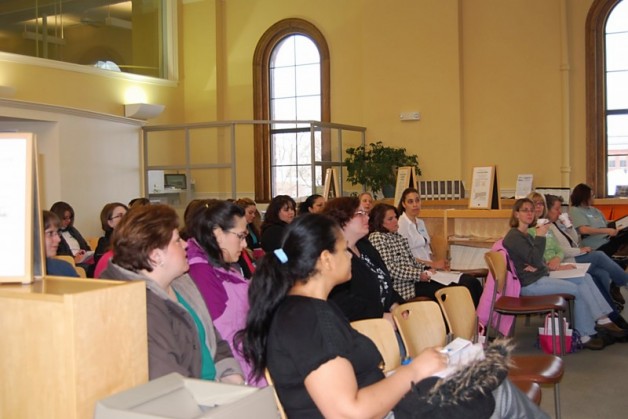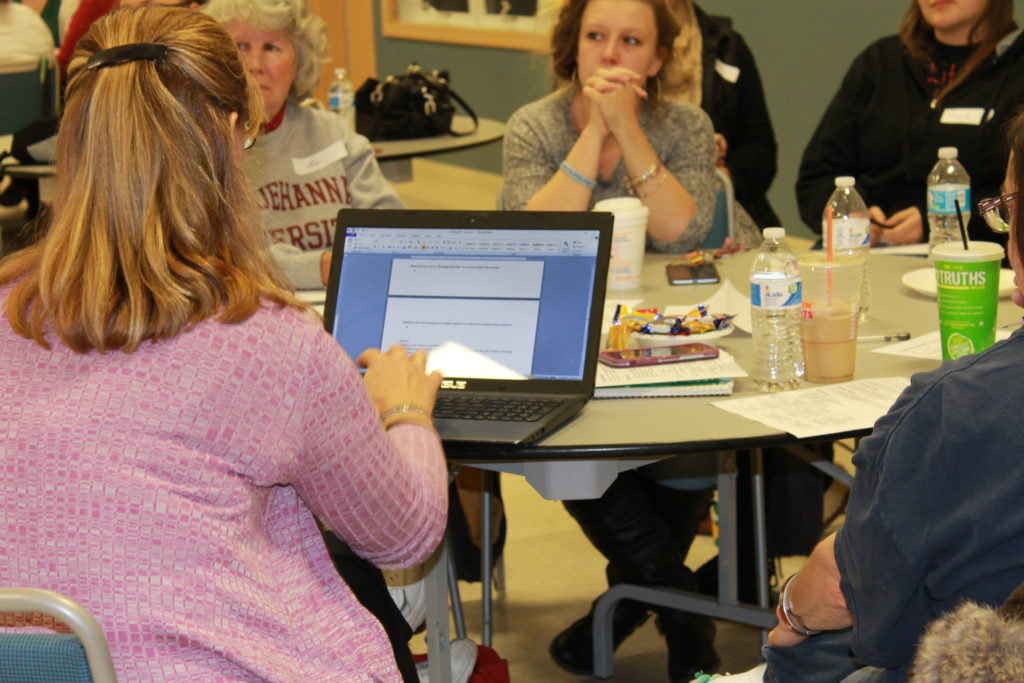After looking at Experiential and Discovery Learning theories, I explored how they can be used in professional development settings for teachers. Of particular focus, I looked at professional development studies that aimed at helping teachers to use technology more broadly in their classrooms.
Examples of Teacher Professional Development
In the studies reviewed (cited at the bottom), researchers looked at the impact of using experiential learning activities to determine if there is an effect on both the level of cognitive achievement, as well as the educators’ perception of experiential learning activities.
Examples from the studies included:
- Coursework that had sections of the class engaged in experiential activities at technology facilities outside of the classroom, in addition to coursework. These interactions provided participants with hands-on opportunities to put into practice concepts they learned in the classroom.
- A “Summer Institute” project for early childhood education teachers to interact with various instructional tools and technology applications. They explored multimedia tools, worked on self-selected technology-based projects which were peer-reviewed, and learned appropriate ways to search for and share digital resources.
- A 6-month exploratory professional development program for early childhood teachers to introduce iPads in the classroom. (This used a discovery-based approach, as the teachers were intentionally not given any specific direction in how to incorporate the iPad into their teaching. Teachers had the freedom to use the iPad at their own discretion, and in a way that made sense for them.)
Some noted results from the studies:
- The cognitive achievement was higher for those who participated in experiential learning activities as part of the course.
- The perception of experiential learning activities was shown to be very positive for the participants who engaged in experiential activities.
- The teachers used the iPads to increase their efficiency with existing tasks, such as recording student learning and communicating with parents.
- A smaller subset of the teachers also used the iPads to enhance their curriculum; such as using the iPad to take pictures on a nature walk and making a class book with it afterward.
Some noted challenges:
- It was noted that there needs to be follow-up support in order to sustain and expand upon the knowledge gained from these types of professional development.
- Some expressed challenges to rounding out the experiential learning cycle were the scarcity of teachers’ time, support from administrators, funding and ongoing technical guidance (Keengwe and Onchwari, 2009).
What can be learned:
The results and approach of the research studies explored here can be used to inform and guide those who offer professional development training for educators.
Through these various examples, I saw how each of the learning models had a positive effect on teacher professional development; both in learning how to use and integrate the new technology and in teachers’ positive perceptions of the learning models used in the training.
One way to support teachers in implementing new instructional methodologies is by using those same models in their own professional training. This was demonstrated by the changes in teachers’ perceptions of experiential learning activities in one of the studies explored here (Ernst, 2013, p. 39).
The increased level of understanding and receptiveness to the value of experiential and discovery learning activities by educators is perhaps the greatest benefit to incorporating them into professional development programs.
RESOURCES
Ernst, J. V. (2013). Impact of Experiential Learning on Cognitive Outcome in Technology and Engineering Teacher Preparation. Journal Of Technology Education, 24(2), 31-40.
Keengwe, J., & Onchwari, G. (2009). Technology and Early Childhood Education: A Technology Integration Professional Development Model for Practicing Teachers. Early Childhood Education Journal, 37(3), 209-218.
Vaughan, M., & Beers, C. (2017). Using an Exploratory Professional Development Initiative to Introduce iPads in the Early Childhood Education Classroom. Early Childhood Education Journal, 45(3), 321-331.
QUESTIONS FOR REFLECTION:
- Do you think that using experiential learning or discovery-based learning in a professional development setting will influence a teacher to use that model in his/her own classroom in the future? Why or Why Not?
- Which model of learning do you think would appeal to most adult learners: experiential/discovery-based learning or direct instruction? Do you think the preferences shift in age groups of adults 18-35 vs adults over 35+?




Leave a Reply